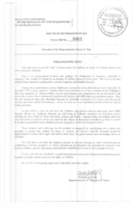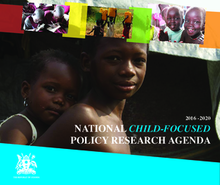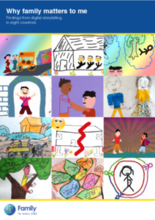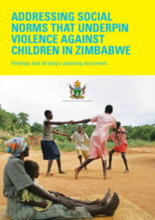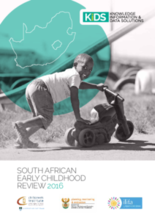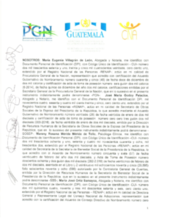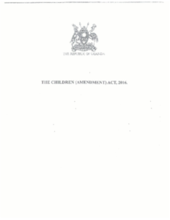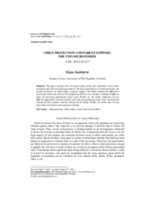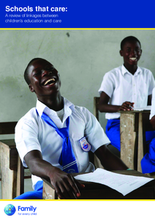Displaying 931 - 940 of 1796
President Aquino of the Philippines has recently signed into law the “Children’s Emergency Relief and Protection Act,” an Act which ensures the protection of children “in times of calamity, disaster, and other emergency situations.”
Although not conclusive or exhaustive, this agenda represents a bold attempt to identify and prioritise key areas/research themes stemming from the Situation Analysis (2015) and other available evidence on the status of children in Uganda.
This report examines what family means to children and adults in the following countries: Brazil, India, Guyana, South Africa, Egypt, Mexico, Russia, Kenya. The storytellers use evidence from 59 short films made using digital storytelling technique.
This report highlights key findings from a social norms study conducted in Zimbabwe to understand the drivers of violence affecting children.
This report reviews South Africa’s National Integrated Early Childhood Development Policy, which was approved by the Cabinet in December 2015. The policy is aimed at providing a framework for multi-sectoral Early Childhood Development services in South Africa.
Meant to highlight the maxim that every child deserves the best that we all have to give; this book provides a review of the progress made since The UN Convention on the Rights of the Child. It contains reports from 21 countries on the status of the rights of the child. The countries are: Australia, Canada, Croatia, Denmark, France, Germany, Greece, India, Iran, Japan, Portugal, Romania, Scotland, Serbia, Solomon Islands, Spain, the Netherlands, the UK, the USA, Uzbekistan and Venezuela. There are no reports from Africa.
The Children (Amendment) Act of 2016 is an Act to amend the Children's Act Cap. 59 of Uganda to enhance the protection of children; to strengthen the provision for guardianship of children; to strengthen the conditions for intercountry adoption; to prohibit corporal punishment; to provide for the National Children Authority; repeal the National Council for Children Cap. 60 and to provide for other related matters.
This paper examines the two basic models of the state authorities’ intervention into family life aimed at protecting children.
This report presents the key findings of a scoping study on the links between education and children’s care. The study involved a literature review in English, French and Spanish; key informant interviews; and consultations with 170 children, carers, teachers and other stakeholders in Guyana, India, Russia and Rwanda.

